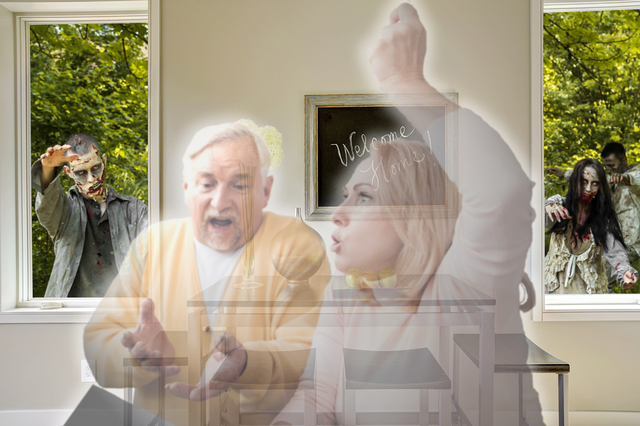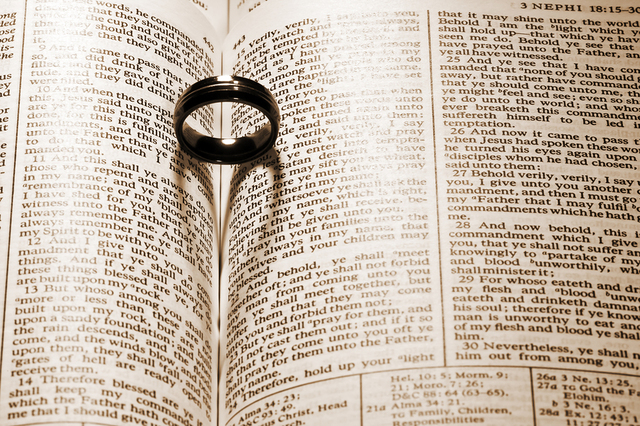Beauty is right there in front of you, and ugliness is right there too. You can take your pick.

The question was death, and whether or not Telly Goodman had seen it. He swore he had, and Roy Grane said he couldn’t have.
“Listen to this,” Roy said when I came in.
Telly said two nights ago he’d been held up by a kid on Taylor Street. The kid had pulled a gun on him. Telly had given him the twenty-two dollars he’d had on him. Then the kid yelled after him when Telly walked away. Telly turned around and saw the kid waving the gun. Only it wasn’t a gun. He couldn’t quite tell in the darkness, but he thought it was a bike lock. It definitely wasn’t a gun. The kid had laughed and laughed.
Telly’s contention was that even though it hadn’t been a gun, he had still seen death.
“From a bike lock,” Roy said.
“Doesn’t matter,” Telly said. “I know what I saw.”
I glanced at Pete at the end of the bar, serving a customer. I wanted to compliment him on the quality of the philosophical conversations in his place in the evening.
“I felt sorry for everybody,” Telly said. “I’ve been feeling sorry for everybody ever since. That’s why it’s taken me two days to even talk about it.”
I had to admit, he did sound like a man who had seen death.
Roy shook his head. “You should’ve kept waiting,” he said. “You can’t see death from having a bike lock pointed at you. It’s physically impossible.”
Telly looked at him with great sympathy. “I thought it was a gun,” he said quietly.
That was good enough for me, but Roy wasn’t budging.
“I saw death,” he said. “I saw death in Vietnam.”
“I know you did,” Telly said. “I’m not saying you didn’t—”
“I would have been happy if all we’d had was bike locks there. That would’ve been wonderful. That would’ve been a walk in the park.”
“Pete,” I called.
Pete came over. “What’ll you have?”
“Pint of Stella,” I said. “Pete, do you know your bar is the setting of some very important discussions, about the very essence of man?”
“Yes,” he said. “But stick around.”
I felt thankful for Pete’s place. I had my first story in a national magazine coming out soon, but it didn’t matter to anybody there. It didn’t matter to me all that much just then.
The writing I had done today mattered to me. I didn’t know where the story was going, but it helped me because it was telling me that when there was an argument over whether or not a man had seen death to pay close attention.
You hope that some of how you feel after writing got into the writing. You hope that the way that everybody is somebody worth listening to then got into the people in the story. You figure it must have, but you don’t want to take it for granted.
Pete brought the beer, and the first sip tasted deserved. I thought again that maybe what I had been writing was good.
“I don’t mind if you don’t think that I saw death,” Telly said. He almost looked happy about it.
“You don’t talk about a thing like that lightly,” Roy said.
“Who’s talking about it lightly?” Telly laughed. The laugh was the thing. He wasn’t laughing at Roy or at the death Roy had seen in Vietnam, but Roy was liable to take it that way.
“Let’s take this step-by-step,” I said. “If it had been a real gun, would you be willing to say that Telly saw death?”
“If it had been a real gun and not a bike lock?”
“Yes.”
“Yes. But it wasn’t a gun.”
“Telly,” I said. “Did you really think it was a gun?”
“Yes,” Telly said.
“The thing is,” I said. “We’re talking about the human imagination here. The human imagination is pretty powerful.”
“Forget it,” Telly said. “If he doesn’t want to believe I saw death, then he doesn’t have to believe I saw death. I don’t have to prove it to him.”
Roy was quiet.
They sounded like kids. But after a long day of writing, it was all right to be around men who sounded like kids. Somewhere in the world there were men who were talking about death in a solemn and quiet way. It all evened out. Maybe some day I would be around those men and I would remember Telly and Roy and it would even out in that direction as well. The point was to remember everybody. It got me in trouble sometimes too to remember everybody, but there was a point in the evening some days when I couldn’t help but remember everybody. It was almost effortless. When I hit that point, I felt like I could do anything. Beauty was right there in front of you, and ugliness was right there too. You could take your pick. Or you could do the same thing I did last night, the same thing I would have to do tomorrow night too—you could say hello to both of them and keep walking. You could trust that there was some balance to it, even though the whole of it was something humans had never seen, not even given the power of the human imagination.
“I think you’ve both seen death,” I said. I said it like they could take it or leave it.
“Do you know how long I’ve been coming in here and drinking with this guy?” Roy said.
“No,” I said.
“Eight years,” he said. “I’ve told him about a lot of things, but I’ve never told him about times when I’ve seen death.”
“You could,” Telly said.
“Ah,” Roy said.
“If you wanted to, you could. I would listen.”
“Sure,” Roy said. “And everybody could tell everybody about times they’ve seen death.”
“That would be all right,” I said.
“It would,” Telly said.
It would be like walking down the path and saying hello to beauty and ugliness if they did, I thought. Only it would be longer-lasting, because the people would be doing it together.
“All right,” Roy said. “You saw death. Just shut up about it.”
“Even though it was just a bike lock?” I said.
“Sure,” he said. “A guy could see death from a paper clip if he thought the paper clip was going to kill him.” He did the thing old white men have done to me where they’ve said my exact point back at me, only louder. It’s a funny way of admitting you were wrong.
“Roy,” Telly said. “You can tell me about times you’ve seen death.”
“Ah,” Roy said.
I hoped Roy would do that some time. I had a feeling he would. I finished my beer and said goodbye. Outside I thought it was true that you could see death from a paper clip. And then I thought it was also true that you could see life from it. I thought maybe we could have that conversation next time.
Copyright © 2018 by Siamak Vossoughi.



